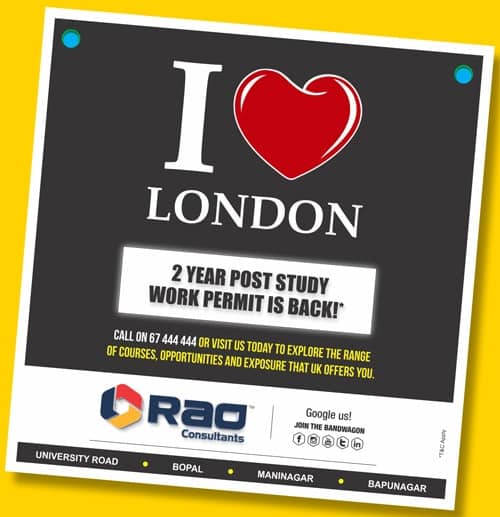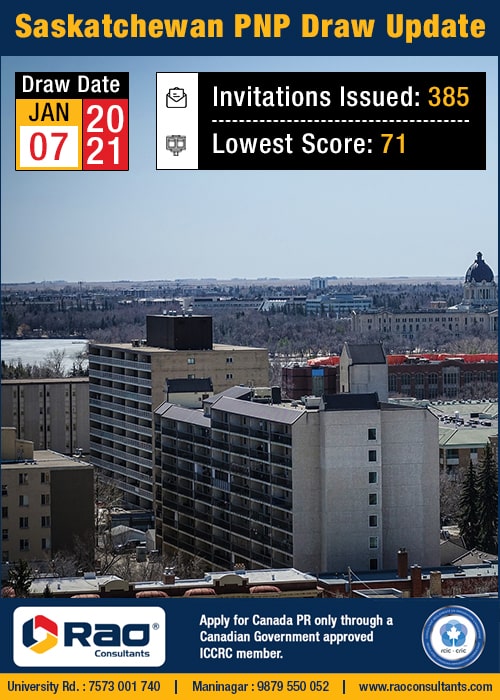Canada Job Search Workshop
These workshops are designed with the help of industry experts in the relevant fields with the objective to make your job search efficient and smart.
It is going to take a lot more than just sending a few emails and applying to random companies on job portals to secure your dream job. You need to be strategic in endorsing your working profile a little to increase your market value. It takes patience and intelligence to land the perfect opportunity.
Let’s face it, the degree of success you achieve in your job search largely depends on how well you market yourself and set yourself apart from the rest of the crowd.
This course is designed to help:
- Create job opportunities for you before your big move to Canada
- You imbibe professional skills that match Canada’s professional standards
- Develop your online personality and improving your resume to impress your future employers
- You become an expert in connecting with professionals to find and secure work opportunities via LinkedIn
- You learn about the Canadian work culture and add to your understanding on how to ace at interviews
- Learning about the skills of communication and emotional intelligence
- Connecting with professionals and experts with the same field of interest as yours
- A promising career in Canada
I. The Canadian Job Market
The Canadian job market is quite well paying; you can make as much as 75-150 CAD per day. Now imagine not being able to earn to your full potential for the initial few days, the sheer monetary loss is staggering. At Rao, we can help you not lose out on this incredible opportunity.
This extensive module will give you an in-depth understanding about the workings of the Canadian job market.
- Canada PR Journey
- Why Canada is “Great Place to Work”?
- In-depth Canadian job market, trends and top employers
- What do Canadian employers look for in an Indian candidate?
- Finding companies that hire new immigrations
- All you need to know about LMIA
- Canadian job search strategy
II. Becoming a LinkedIn Expert
LinkedIn is not just a professional networking site, it is THE professional networking site. It allows its users to connect with real-world professionals working and acing their respective fields. According to a recent survey, LinkedIn has twice the number of job listings as compared to other job portals.
Using LinkedIn in the right manner and with precision can be extremely beneficial to you resulting in amazing opportunities coming your way.
In this workshop, we will be guiding you towards how you can build and maintain a great professional profile on LinkedIn. You will also learn about how to effectively network on LinkedIn, find job opportunities and apply for the same.
- Starter Checklist
Building a great LinkedIn profile is all about nailing your basics. Doing the little things right at this stage will lead to successfully finding leads and work opportunities.
a. Polishing your LinkedIn Profile
b. Setup saved job alerts
c. Make a List of Skills you want to Develop
- Job vs. Career
“Working hard for something we don’t care about is called stress; working hard for something we love is called passion.” – Simon Sinek
People always confuse the words job and career. Looking at a job as just a job takes away from the big picture that is your career. A job is a leg-up towards achieving the career graph you want to achieve.
a. Find your Expertise and Evolve
b. Plot your Progress
c. Balance Is the Key
d. Combine Passion and Problem Solving
e. Create a Powerful Network
- Your Go-To People for Advice
Select a handful of people whom you can trust to give you good advice. Having a pool of people who you can depend on for sound career advice is crucial in helping you forge further in your career.
a. The Advocate
b. The Strategic “In”
c. The Expert
- Your LinkedIn Profile Vs. Your Resume
The difference between your LinkedIn profile and your Resume is very simple. Everything in your Resume is available on your LinkedIn profile but it isn’t true the other way round. You can provide additional valuable information to your LinkedIn profile that says more about you. But make sure that the information you provide is concise and unique.
a. Level of Specificity
b. The Length
c. Recommendations
d. Profile as a Platform
- The Ultimate Guide to LinkedIn Profile Optimization
A LinkedIn profile is primarily comprised of three things; your profile photo, your bio and recommendations. A perfectly written profile tends to be noticed immediately, such a profile would ideally include:
a. Profile Photo
b. Headline
c. Summary
d. Experience
e. Education
f. Recommendations
g. Skills and Endorsements
- LinkedIn Social Selling Index Score
LinkedIn’s Social Selling Index (SSI) is a first-of-its-kind measure of a company’s or individual’s adoption of the ‘4 Pillars of Social Selling’ on LinkedIn, measured on a scale of 0 to 100. LinkedIn gauges your performance on each of the 4 pillars, which we will go through further. Your SSI will get developed on a daily basis to help you improve further.
a. Establishing Your Professional Brand
b. Finding the Right People
c. Engaging With Insights
d. Building Strong Relationships
- Why LinkedIn is a Better Platform for Job Search
There are multiple job portals available worldwide that can help you find a good profile. There are, however, multiple factors that make LinkedIn a better platform for searching jobs. Here are some of these crucial points you need to be looking for on LinkedIn:
a. Surfaces Potential Connections
b. Targeted Insights
c. Meet the Team
- Save, Search & Automate
LinkedIn has an array of features that help you find the job opportunities best suited for your particular skill sets. Here are some essential functionalities of LinkedIn that you can use for the same:
a. Important Job Search Filters
b. Saved Jobs
c. Job Alerts
d. Jobs You Might Be Interested In
- How LinkedIn Company Pages Can Help
You can directly communicate with companies and their teams through LinkedIn.
a. Relevant Company Info
b. Current Openings
c. Current & Past Employees
- How LinkedIn Groups can Help
Joining groups can greatly improve your knowledge about a field and also improve your communication skills. MeetUp, NetworkingInVan, Vancouver Irish Business & Enterprise (VIBE) are among the most active groups for people to come together in Canada.
a. Find new Connections
b. Gain Access to Group Member Profiles
c. Discover Industry News
d. Join the Conversation
- Networking Strategies for Getting the Job
Landing the perfect job can be a little difficult, but with the right strategies in place it can be made possible.
a. Combining Online and Offline Conversations
b. The Expected & Unexpected Bridges That Unlock New Opportunities
c. Networking in Canada
- A Recruiter’s Perspective
A Canadian recruiter is looking for a specific set of talents and skills from employers. While there are a lot of these skills that differ from profile to profile, there are a number of common denominators that can help you land the profile you are seeking.
III. Employability Skills
Experience and skills are the most important things needed to secure a good job. However, what happens when two candidates have similar capabilities? The interviewers will pick the one with better personality traits and people skills. We believe that the best way to express your personality is to be yourself.
“If you’re a great fit, it will be apparent. If you’re not, it will also be apparent.”
With the right guidance there is nothing stopping you from realizing your true potential, and we at Rao can help you do just that.
- Know your Best Self
You need to identify your best strengths and weaknesses. It is essential to work on yourself and back yourself up.
a. Self-motivation Rating
b. My Self-talk Script
c. My Positivity Rating
- Communication
There is a difference between hearing and listening. The key to good communication is listening well before speaking and most importantly, to have an objective perspective on what is being communicated.
a. My Communication Rating
b. My Communication Values
c. Learn to Sell Yourself
d. Handling Difficult Conversations
- Social and Emotional Intelligence
There can be times when you get into difficult situations and your choice of words can have a huge influence on the situation. It is essential that you use all your filters before you say something. Try to analyze the situation and be careful in choosing your words. Understand the culture and compose your statements accordingly.
- Power Dressing
The way you dress is a huge factor on how impressively you present yourself. Find a style that suits you and make sure that you imbibe that.
a. Know Your Personal Style
b. Building A Capsule Wardrobe
c. Business Formals and Business Casuals
IV. Interview Skills
Congratulations! You applied for your dream job, got selected and got through the telephonic rounds. Now you have an interview planned with your future employers. This is where the real test begins.
“First impression is the last impression.”
You have a great looking CV, your LinkedIn profile is perfect, you are qualified for the job; however, you still need to make a first impression on your interviewers. This workshop will guide you on how to make a striking first impression for your interview.
- Make a Great First Impression
The most important thing you need to keep in mind is to be early for an interview. Being early will help you learn some things about the company by seeing their working environment.
According to a research, 33% managers knew if they would want to hire a person in the first 90 seconds of the interview. 55% think that first impressions are made by the way a person dresses, acts, and their body language. Here are some key points to keep in mind for your interview:
- What Are the Best Ways to Make a Good First Impression?
- How Should You Keep a Firm Handshake?
- Get to Know the Best Way to Maintain Eye Contact.
- How to Maintain a Good Posture?
- 5 Most Commonly asked Questions
There are certain questions that are usually asked of everyone during interviews. These questions help the interviewer to know all the essential things about the person applying.
a. Tell me about yourself
b. Why do you want this job
c. What are your strengths
d. What are your weaknesses
e. Where do you see yourself in 5 years
- Say No to Anxiety
Meeting with interviewers can be an anxious affair for some. There are a number of mental exercises that can help you overcome your fears.
Having mental rehearsals of the interview can be of great help. Visualize situations and answer the questions you think you will be asked. Try practicing in front of the mirror, maintain eye contact and answer your questions. Avoid being distracted by things around you and focus on yourself. Ask someone to take a mock interview of you, which will help you put in practice these steps to allay your anxiety.
- Your Resume
Creating a strong resume is vital for landing that dream job. Here are some tips for creating the perfect resume:
a. Which Resume Format Is Best To Use
b. How long should your CV be
c. What makes a CV stand out for Canadian Market
d. What languages do you speak and what is your international exposure
e. What are your skills
f. How to use important “Keywords” in your Resume
Essentials of a Canadian Resume
a. Contact Information
b. Professional Summary
c. Work Experience
d. Education
- Pre-Interview & Post-Interview Follow-up
There are certain key things you should keep in mind while building up for the big interview and the post interview follow-up:
Pre-Interview Preparation:
a. Check on the suitable dress you are going to wear during the Interview
b. Practice sitting with a good posture, a strong handshake, and a positive body language.
c. Keep enough copies of your resume and all your documents in order.
d. Compare your skills and experience to the requirement of the job profile.
Post-Interview follow-up
a. Address next step
b. Appreciate time and advise
c. Include anything you’ve forgotten to mention in the interview
After your interview, make sure you follow up with the interviewer after a few hours. Just thanking them for their time and saying that you look forward to hearing from them, can also create a lasting impression. It is also important to ask for feedback about how you performed in the interview. This shows the company that you are interested in self-improvement and do not shy away from asking for advice.



